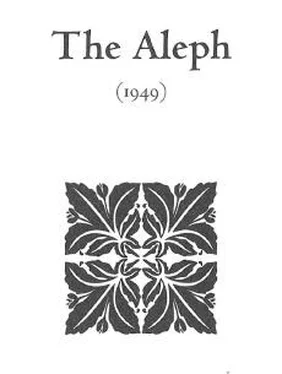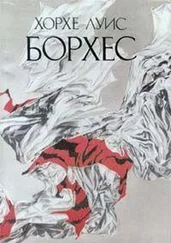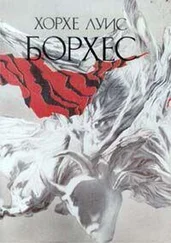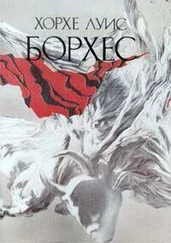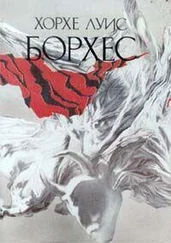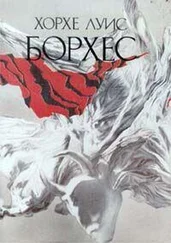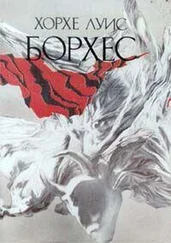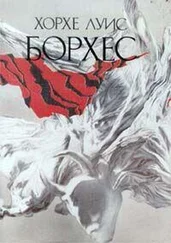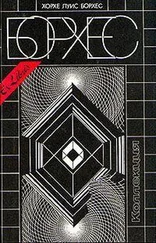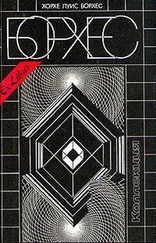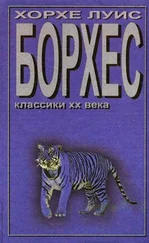Хорхе Борхес - Collected Fictions
Здесь есть возможность читать онлайн «Хорхе Борхес - Collected Fictions» весь текст электронной книги совершенно бесплатно (целиком полную версию без сокращений). В некоторых случаях можно слушать аудио, скачать через торрент в формате fb2 и присутствует краткое содержание. Год выпуска: 1999, ISBN: 1999, Издательство: Penguin (UK), Жанр: Старинная литература, на английском языке. Описание произведения, (предисловие) а так же отзывы посетителей доступны на портале библиотеки ЛибКат.
- Название:Collected Fictions
- Автор:
- Издательство:Penguin (UK)
- Жанр:
- Год:1999
- ISBN:9780140286809
- Рейтинг книги:5 / 5. Голосов: 1
-
Избранное:Добавить в избранное
- Отзывы:
-
Ваша оценка:
- 100
- 1
- 2
- 3
- 4
- 5
Collected Fictions: краткое содержание, описание и аннотация
Предлагаем к чтению аннотацию, описание, краткое содержание или предисловие (зависит от того, что написал сам автор книги «Collected Fictions»). Если вы не нашли необходимую информацию о книге — напишите в комментариях, мы постараемся отыскать её.
Collected Fictions — читать онлайн бесплатно полную книгу (весь текст) целиком
Ниже представлен текст книги, разбитый по страницам. Система сохранения места последней прочитанной страницы, позволяет с удобством читать онлайн бесплатно книгу «Collected Fictions», без необходимости каждый раз заново искать на чём Вы остановились. Поставьте закладку, и сможете в любой момент перейти на страницу, на которой закончили чтение.
Интервал:
Закладка:
It is no exaggeration to say that the classical culture of Tlön is composed of a single discipline—psychology—to which all others are subordinate. I have said that the people of that planet conceive the universe as a series of mental processes that occur not in space but rather successively, in time. Spinoza endows his inexhaustible deity with the attributes of spatial extension and of thought; no one in Tlön would understand the juxtaposition of the first, which is typical only of certain states, and the second— which is a perfect synonym for the cosmos. Or to put it another way: space is not conceived as having duration in time. The perception of a cloud of smoke on the horizon and then the countryside on fire and then the half-extinguished cigarette that produced the scorched earth is considered an example of the association of ideas.
This thoroughgoing monism, or idealism, renders science null. To explain (or pass judgment on) an event is to link it to another; on Tlön, that joining-together is a posterior state of the subject, and can neither affect nor illuminate the prior state. Every mental state is irreducible: the simple act of giving it a name—i.e., of classifying it—introduces a distortion, a "slant" or "bias." One might well deduce, therefore, that on Tlön there are no sciences—or even any "systems of thought." The paradoxical truth is that systems of thought do exist, almost countless numbers of them. Philosophies are much like the nouns of the northern hemisphere; the fact that every philosophy is by definition a dialectical game, a Philosophie des Als Ob, has allowed them to proliferate. There are systems upon systems that are incredible but possessed of a pleasing architecture or a certain agreeable sensationalism. The metaphysicians of Tlön seek not truth, or even plausibility—they seek to amaze, astound. In their view, metaphysics is a branch of the literature of fantasy. They know that a system is naught but the subordination of all the aspects of the universe to one of those aspects— any one of them. Even the phrase "all the aspects" should be avoided, because it implies the impossible addition of the present instant and all those instants that went before. Nor is the plural "those instants that went before" legitimate, for it implies another impossible operation.... One of the schools of philosophy on Tlön goes so far as to deny the existence of time; it argues that the present is undefined and indefinite, the future has no reality except as present hope, and the past has no reality except as present recollection. [2] Another school posits that all time has already passed, so that our life is but the crepuscular memory, or crepuscular reflection, doubtlessly distorted and mutilated, of an irrecoverable process. Yet another claims that the history of the universe—and in it, our lives and every faintest detail of our lives—is the handwriting of a subordinate god trying to communicate with a demon. Another, that the universe might be compared to those cryptograms in which not all the symbols count, and only what happens every three hundred nights is actually real. Another, that while we sleep here, we are awake somewhere else, so that every man is in fact two men.
Of all the doctrines of Tlön, none has caused more uproar than materialism. Some thinkers have formulated this philosophy (generally with less clarity than zeal) as though putting forth a paradox. In order to make this inconceivable thesis more easily understood, an eleventh-century heresiarch 3 conceived the sophism of the nine copper coins, a paradox as scandalously famous on Tlön as the Eleatic aporiae to ourselves. There are many versions of that "specious argument," with varying numbers of coins and discoveries; the following is the most common:
On Tuesday, X is walking along a deserted road and loses nine copper coins. On Thursday, Y finds four coins in the road, their luster somewhat dimmed by Wednesday's rain. On Friday, Z discovers three coins in the road. Friday morning X finds two coins on the veranda of his house.
From this story the heresiarch wished to deduce the reality—i.e., the continuity in time—of those nine recovered coins. "It is absurd," he said, "to imagine that four of the coins did not exist from Tuesday to Thursday, three from Tuesday to Friday afternoon, two from Tuesday to Friday morning. It is logical to think that they in fact did exist—albeit in some secret way that we are forbidden to understand—at every moment of those three periods of time."
The language of Tlön resisted formulating this paradox; most people did not understand it. The "common sense" school at first simply denied the anecdote's veracity. They claimed it was a verbal fallacy based on the reckless employment of two neologisms, words unauthorized by standard usage and foreign to all rigorous thought: the two verbs "find" and "lose," which, since they presuppose the identity of the nine first coins and the nine latter ones, entail a petitio principii. These critics reminded their listeners that all nouns (man, coin, Thursday, Wednesday, rain) have only metaphoric value. They denounced the misleading detail that "[the coins'] luster [was] somewhat dimmed by Wednesday's rain" as presupposing what it attempted to prove: the continuing existence of the four coins from Tuesday to Thursday. They explained that "equality" is one thing and "identity" another, and they formulated a sort of reductio ad absurdum —the hypothetical case of nine men who on nine successive nights experience a sharp pain. Would it not be absurd, they asked, to pretend that the men had suffered one and the same pain? [4]
Incredibly, those refutations did not put an end to the matter. A hundred years after the problem had first been posed, a thinker no less brilliant than the heresiarch, but of the orthodox tradition, formulated a most daring hypothesis. His happy conjecture was that there is but a single subject; that indivisible subject is every being in the universe, and the beings of the universe are the organs and masks of the deity. X is Y and is also Z. Z discovers three coins, then, because he remembers that X lost them; X finds two coins on the veranda of his house because he remembers that the others have been found.... Volume Eleven suggests that this idealistic pantheism triumphed over all other schools of thought for three primary reasons: first, because it repudiated solipsism; second, because it left intact the psychological foundation of the sciences; and third, because it preserved the possibility of religion. Schopenhauer (passionate yet lucid Schopenhauer) formulates a very similar doctrine in the first volume of his Parergaund Paralipomena.
Tlön's geometry is made up of two rather distinct disciplines—visual geometry and tactile geometry. Tactile geometry corresponds to our own, and is subordinate to the visual. Visual geometry is based on the surface, not the point; it has no parallel lines, and it claims that as one's body moves through space, it modifies the shapes that surround it. The basis of Tlön's arithmetic is the notion of indefinite numbers; it stresses the importance of the concepts "greater than" and "less than," which our own mathematicians represent with the symbols > and <. The people of Tlön are taught that the act of counting modifies the amount counted, turning indefinites into definites. The fact that several persons counting the same quantity come to the same result is for the psychologists of Tlön an example of the association of ideas or of memorization. —We must always remember that on Tlön, '.'he subject of knowledge is one and eternal.
Читать дальшеИнтервал:
Закладка:
Похожие книги на «Collected Fictions»
Представляем Вашему вниманию похожие книги на «Collected Fictions» списком для выбора. Мы отобрали схожую по названию и смыслу литературу в надежде предоставить читателям больше вариантов отыскать новые, интересные, ещё непрочитанные произведения.
Обсуждение, отзывы о книге «Collected Fictions» и просто собственные мнения читателей. Оставьте ваши комментарии, напишите, что Вы думаете о произведении, его смысле или главных героях. Укажите что конкретно понравилось, а что нет, и почему Вы так считаете.
